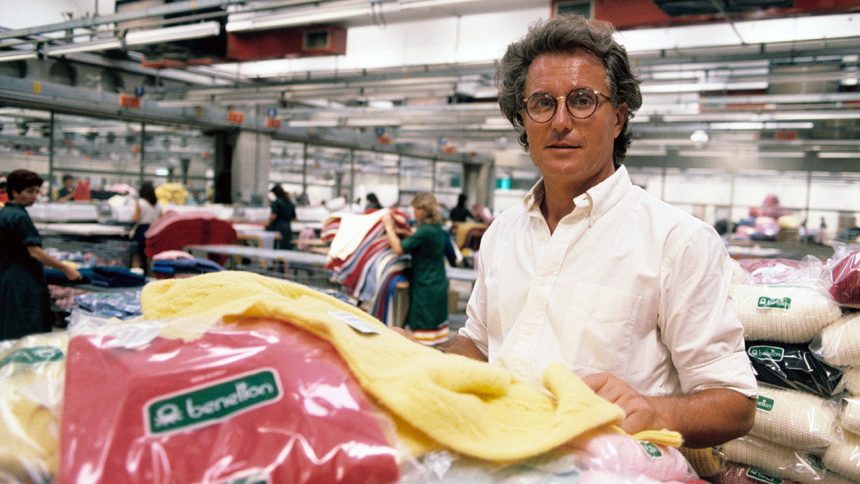Reviving a Fashion Legacy: The Challenges Facing Italy’s Casual Wear Icon
Introduction to a Declining Brand
Benetton, once synonymous with vibrant colors and bold statements in the casual fashion industry, is now grappling with significant financial difficulties. The brand’s illustrious history, which began in the 1960s, has seen a dramatic decline in its standing amid shifting market dynamics and consumer preferences.
Historical Significance of Benetton
Founded by the Benetton family in Treviso, Italy, this brand carved out a niche with innovative designs and striking advertising campaigns that often sparked conversation. The iconic knitwear pieces became staples around the globe as they epitomized youthful exuberance and diversity. However, recent years have seen this iconic label falter under increasing competition from fast-fashion retailers like Zara and H&M.
Current Financial Predicament
As of 2024, Benetton’s revenue figures reveal troubling trends; reports indicate they are operating at only 60% of their pre-pandemic sales volumes. This downturn can be attributed not only to increased operational costs but also to an inability to resonate with today’s environmentally conscious consumers who favor sustainable practices over traditional retail models.
Evolution of Consumer Preferences
Today’s shoppers prioritize brands that align closely with their values—transparency in sourcing materials and ethical labor practices are high on their lists. While Benetton initially captured attention through bold social messages in advertisements advocating for equality and peace, these efforts have lost traction against younger brands that offer transparency alongside style.
Recent Initiatives: A Step Toward Improvement?
In response to its slipping consumer base, Benetton has taken steps towards revitalization. Initiatives include launching eco-friendly collections aimed at appealing to sustainability-conscious customers while revamping marketing strategies that focus on digital engagement rather than traditional advertisements. These changes are crucial as statistics show that roughly 60% of millennials prefer purchasing from brands committed to sustainability.
Competitive Landscape: Adapting or Perishing?
The impact of fast-fashion giants presents another layer of challenge for established players like Benetton. In August 2023 alone, Zara reported record online sales driven by personalized shopping experiences tailored through advanced data analytics—a field where many legacy brands still lag behind despite considerable resources.
A Glimpse into Future Strategies
For any potential turnaround strategy to succeed comprehensively for Benetton moving forward involves embracing technological advances—including artificial intelligence—to enhance product offerings based on real-time customer interest data while further developing e-commerce platforms deemed essential for survival in today’s market environment.
Conclusion: An Uncertain Path Ahead
Although navigating out of these troubled waters will require steadfast commitment toward innovation along with robust engagement efforts directed at nurturing relationships within core demographic groups primarily comprising young adults who drive fashion trends globally—success remains uncertain as perceptions continue fluctuating toward newer entrants dominating discussions around contemporary style choices effectively pushing heritage names like Benetton further into obscurity unless significant pivots occur quickly within organizational frameworks existing today.





